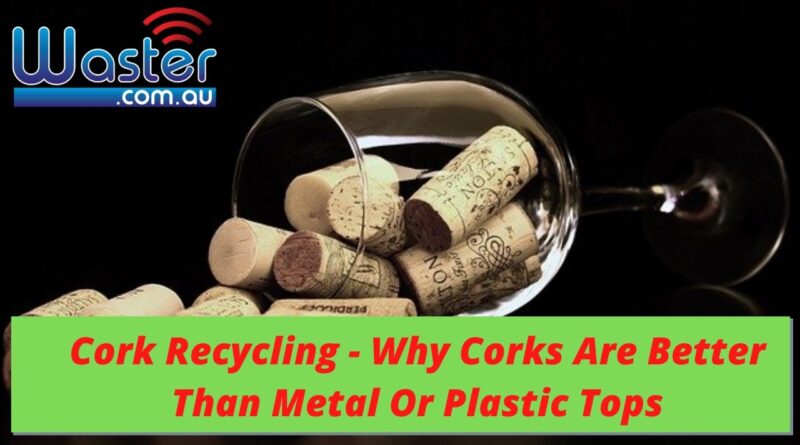Can You Recycle Corks From Wine Bottles 🍾 Cork Recycling
Can You Recycle Corks From Wine Bottles 🍾 Cork Recycling
https://waster.com.au/cork-recycling/
https://waster.com.au/waste-and-recycling-directory/
Waster provides low cost waste and recycling to small and medium Aussie businesses – boosting recycling and saving you money.
RESOURCES & LINKS:
____________________________________________
Checkout lots of recycling assets like flowcharts for your business here: https://waster.com.au/recycling-flowc…
Try our online quiz and calculators on recycling here: https://waster.com.au/carbon-neutral-…
LinkedIn: https://ir.linkedin.com/company/waste…
____________________________________________
► Find all your bins and recycling services for business here: https://waster.com.au/waste-recycling…
►Twitter: https://twitter.com/waster_com_au
►Facebook: https://www.facebook.com/waster.com.au
►Instagram: https://www.instagram.com/waster.com.au/
#corkrecycling
#recyclecorks
Buy It
00:00
Act one 00:05
as it is quickly approaching the festive season – many people will be attending parties, family gatherings and work functions – and you may even be opening the odd bottle of wine. Recent years have seen metal and sometimes even plastic corks replacing the old, traditional wooden corks that we were all used to. If you are like me – you may ask yourself – which is better for the environment – so we hope to answer that question today.
Act 2 00:40
The first thing to note is that traditional wooden corks – are not just any old wood. They are flexible – which enables them to pop out of a champagne bottle. The are traditionally harvested from cork forests in the Mediterranean and in particular Spain and Portugal.
It is very interesting – that traditional cork harvesting is renewable – this means that the tree is generally not cut down. Cork is harvested from trees in a way which keeps the tree alive to grow more cork, which is harvested again some years later. Which really removes any guilt from drinkers.
Another benefit of traditional cork – is that cork forests are the native habitat of endangered animals such as the Iberian Lynx, Iberian Wolf, Spanish Imperial Eagle and the Barbary Stag.
By using traditional corks – we help preserve these native habitats.
Act 3 01:35
So if that is the positive – what is the negative.
Corks – are quite difficult to recycle – i.e. as there is generally not a recycling service – or system available – as they are quite small.
However – my view is that they are wood, and so will naturally decay anyway – so this is by no means that bad – certainly much better than plastic etc.
Corks will decay in commercial composting – so many cities will take them in green bins for grass clippings. They will not breakdown in your garden compost – but if you chip them – they can make a good mulch for your garden.
I personally believe wood is almost always better than plastic or metal – as it is non toxic – and has no negative impacts on wildlife.
I hope this makes you feel better about yourself the morning after a big party!

